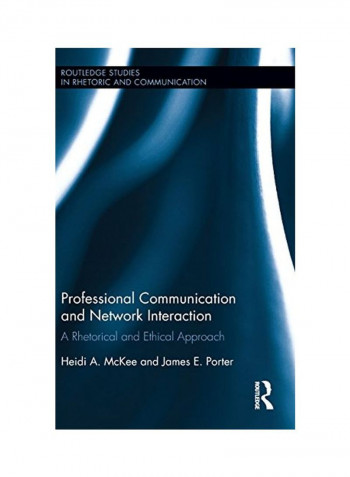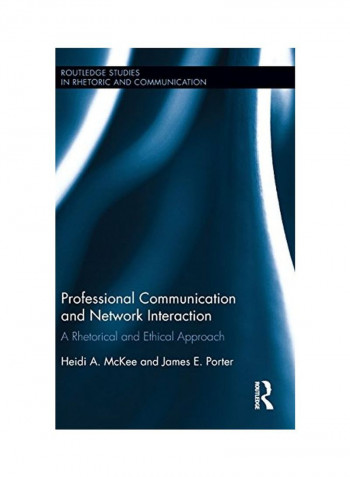Professional Communication And Network Interaction Hardcover
Recommend
Sort by
Rating
Date
Specifications
Country of Origin
India
Author 1
Heidi A. McKee
Book Description
Digital technologies and social media have changed the processes, products, and interactions of professional communication, reshaping how, when, with whom, and where business professionals communicate. This book examines these changes by asking: How does rhetorical theory need to adapt and develop to address the changing practices of professional communication? Drawing from classical and contemporary rhetorical theory and from in-depth interviews with business professionals, the authors present a case-based approach for exploring the changing landscape of professional communication. The book develops a rhetorical theory based on networked interaction and rhetorical ethics: seeing professional communication as involving new kinds of networked interactions that require an integrated view of rhetoric and ethics. The book applies this frame to a variety of communication cases involving, for example, employee missteps on social media, corporate-consumer interactions, and the developing use of artificial intelligence agents (AI bots) to handle online communication.
ISBN-10
1138715212
ISBN-13
9781138715219
Language
English
Publisher
Taylor & Francis Ltd
Publication Date
08 June 2017
Number of Pages
222
About the Author
Heidi A. McKee is an Associate Professor in the Department of English at Miami University, USA. She also serves as the Roger and Joyce L. Howe Professor of Written Communication and the Director of the Howe Writing Initiative in the Farmer School of Business at Miami. James E. Porter is a Professor of Rhetoric and Professional Communication in the Armstrong Institute for Interactive Media Studies and the Department of English at Miami University, USA.
Author 2
James E. Porter
Editorial Review
Heidi McKee and James Porter theorize the use of social media tools in business settings using a fresh, practitioner-oriented research approach that will appeal to business communication scholars, teachers, students and business practitioners alike. With the growing use of social media among both businesses as well as the general public to facilitate communication, this book provides a toolkit by which educators and practitioners can think about how to use those digital tools ethically and productively. -Dirk Remley, Kent State University




